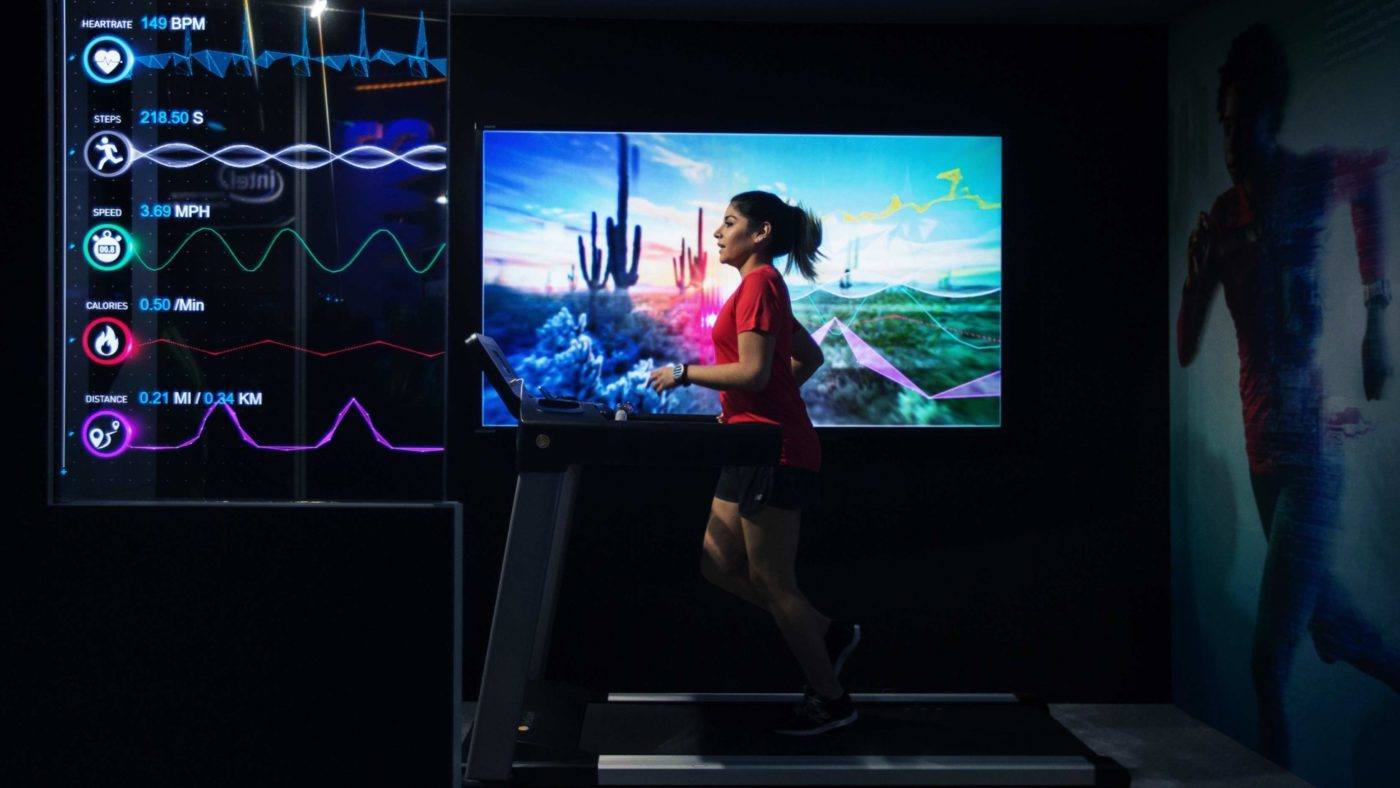Have you ever wanted jeans that also give you directions? Or a bidet that uses nanotechnology? Or a games console for your dog?
If so, there’s only one place to go: the world’s largest gadget fair, the Consumer Electronics Show in Las Vegas, which celebrated its 50th birthday at the weekend.
CES is the place where the world was first introduced to the VCR, the CD player and the Xbox. And also to innumerable less successful and often downright ludicrous attempts to turn the world on its head – usually by cramming cameras and apps and artificial intelligence into perfectly innocent kitchen appliances.
This year, there have been the usual mainstays. TVs that grow ever thinner, wider and crisper. Laptops that grow ever sleeker and faster. Also the novelties: smart beds that adjust position to minimise snoring. Walking sticks that send out alerts when their user falls over. A hairbrush that detects damaged hair.
But the overall theme is very much the rise of the robots. There are self-driving cars by the bucketload, as well as connected vehicles whose drivers can use voice commands to navigate, or to find and make a booking at a nearby restaurants.
That is part of a wider focus on assistant software – the most prominent example being the little boxes, like Amazon’s best-selling Echo, which sit in the corner of your living room waiting for orders for pizza delivery, or dimmer lights, or a particular soundtrack.
So will this stuff really change the world? Certainly, the need to sell every new fad as a ground-breaking, world-shaking innovation does nobody any favours.
After all, if you took all the hype from CESes past and present seriously, you’d currently be reading this article on your Motorola Xoom tablet, while sitting in front of your 3D television, before getting interrupted by a message from your smartwatch telling you that the milk in your intelligent fridge has gone off.
And it’s hard to square the predictions this year that virtual reality will sweep the world with the fact that Intel still had to provide sick bags during the launch of its own take on the technology.
But taken in aggregate, the show offers a crystal-clear summary of where the market sees our lives going. Companies are stampeding to produce VR helmets, or add intelligence and connectivity to their existing products, not because they want to seem trendy – although that’s certainly part of it – but out of economic necessity.
In today’s electronics market, if you’re making “dumb” products, you’re increasingly competing on price. Unless you’re a true videophile, one stunningly thin and stunningly large TV is much the same as any other.
Making your products “smart” not only allows you to up your profit margins and differentiate yourself in the marketplace: it increasingly seems like the only way to survive.
If you’re Audi, it’s pretty cool to be able to announce your own self-driving car. But it’s also the only way to avoid being muscled out of the market of the future by Google, Tesla and all the other Silicon Valley parvenus.
What these companies all believe is that technology, gadgets and devices aren’t things that are separate from our lives. They’re becoming baked into them.
Soon, there won’t be a time of the day when we’re online and a time of the day when we’re off. Whether it’s accessing our playlists from the car, or dictating a memo from the sofa, or having smart glasses that can translate foreign street signs, the future is one in which technology will work to satisfy our real-world needs, almost as soon as we’ve thought of them, or perhaps even before.
Many people will scoff at this, and claim that they don’t have any need for new gadgets and gizmos. And it’s true that it’s hard to see a real market demand for a fridge whose contents can be inspected via smartphone.
Yet history suggests that we will always rush to embrace anything that offers us greater convenience – and that what initially seems novel soon becomes routine. One technology writer recently admitted that it now feels weird to turn the lights off himself, rather than asking the Amazon Echo to do it for him.
Ultimately, in the grand scheme of things, it really doesn’t matter much that Samsung is making a TV that looks like a painting when it’s turned off (it even comes in a wooden frame). Or that someone has invented an artificially intelligent toothbrush. Or even the particular nature of the buzzwords at CES this year as opposed to last – though for the record, wearables are out and augmented reality is in.
What matters instead is the direction of travel – and it’s one set not by the technologists, but by all of us as consumers. It’s towards a world in which we are surrounded by hardware and software, which is constantly analysing and monitoring its surroundings in order to serve us better.
It’s a prospect that’s simultaneously creepy, fascinating – and inevitable.


